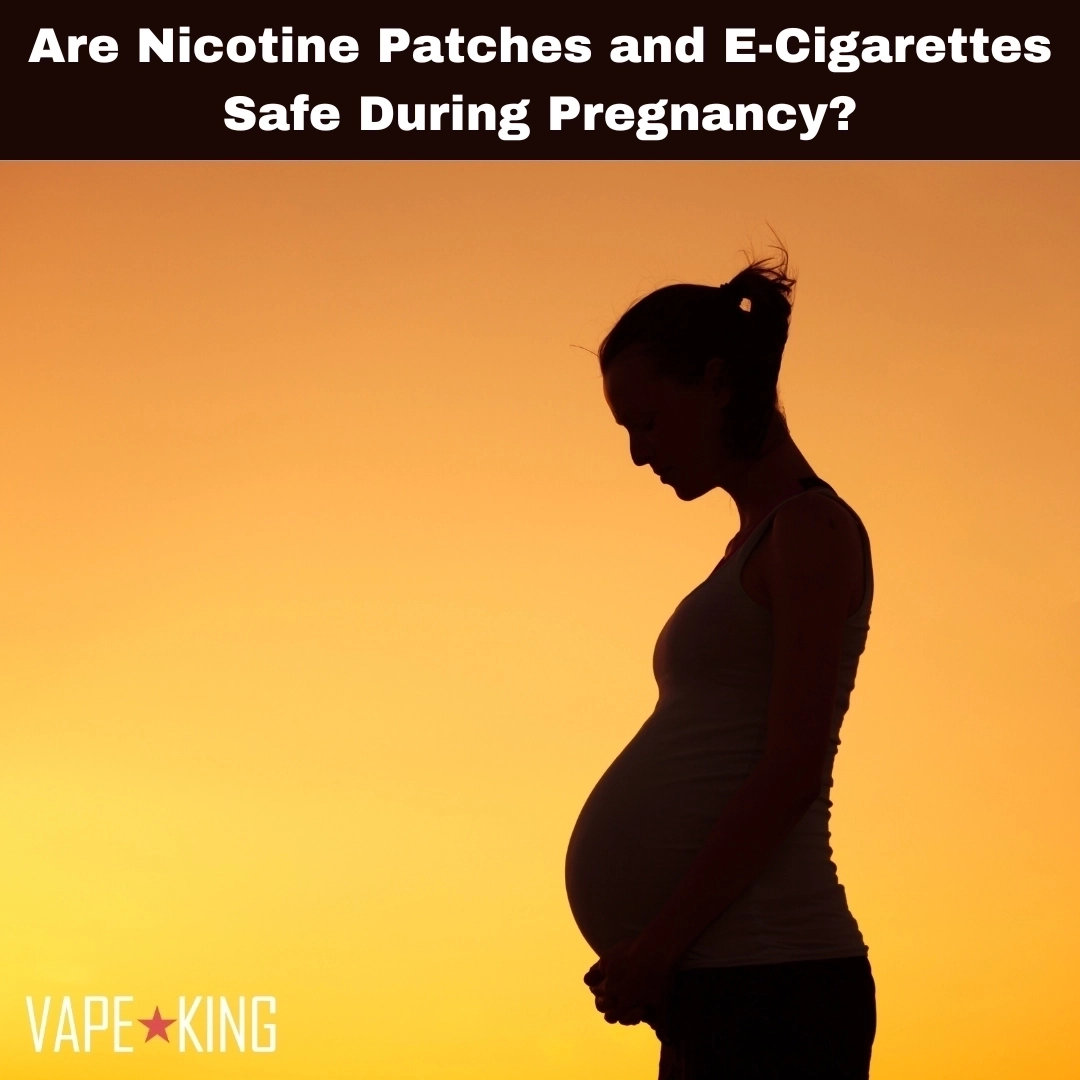Free Shipping on orders R1000 or more!
Are Nicotine Patches and E-Cigarettes Safe During Pregnancy?

Guidelines consistently suggest that the best course of action for a pregnant woman is to cease smoking. Now, recent research indicates that regular utilization of nicotine replacement products to aid smoking cessation does not correlate with adverse events or poor pregnancy outcomes.
"Using nicotine products to quit smoking during pregnancy seemed safe," remarked Professor Peter Hajek of the Wolfson Institute of Population Health, Queen Mary University of London, and the study's lead researcher, to Medscape News UK.
The researchers discovered that pregnant women who quit smoking cigarettes and employed e-cigarettes and nicotine patches had infants with significantly higher birth weights than smokers, comparable to abstainers not using nicotine. The study, funded by the National Institute for Health and Care Research (NIHR) and conducted by scientists at Queen Mary University of London, was published in the journal Addiction.
Current Recommendations
The prevalence of smoking during pregnancy has been steadily declining. The smoking rate for pregnant women at birth dropped to 9.1% in 2021-2022, the lowest recorded annual rate. Although it further decreased to 8.8% in 2022-2023, it remained above the government's 6% target.
A groundbreaking 2015 review commissioned by Public Health England and led by King's College London found that e-cigarettes had the potential to reduce smoking rates. It also revealed that nearly half the population (44.8%) was unaware that e-cigarettes or vapes were significantly less harmful than smoking.
Both the Royal College of Obstetricians and Gynaecologists (RCOG) and the NHS currently advise pregnant women to quit smoking entirely, preferably before conception.
They also recommend nicotine replacement therapy (NRT) as an effective aid for pregnant women who wish to quit smoking. NICE highlights in its recommendations for treating tobacco dependence in pregnant women that "any risks associated with using NRT are much lower than those of smoking."
In 2019, the Royal College of Midwives issued a position statement asserting that "E-cigarettes contain some toxins, but at far lower levels than found in tobacco smoke. If a pregnant woman who has been smoking chooses to use an e-cigarette (vaping) and it helps her to quit smoking and stay smoke-free, she should be supported to do so."
However, Professor Tim Coleman, from the Smoking in Pregnancy research group at the University of Nottingham, who was also involved in the study, noted in a press release that "some clinicians are hesitant to provide NRT or e-cigarettes during pregnancy."
Hajek explained that in animal studies, chronic forced large doses of nicotine resulted in various adverse pregnancy outcomes. This cautioned some healthcare professionals. Nevertheless, he stated that studies have demonstrated that this does not translate to self-regulated nicotine doses in humans.
Establishing a Knowledge Base
However, knowledge gaps persist. A Cochrane review in 2020 concluded that there was no evidence that NRT positively or negatively impacted birth outcomes. In 2021, a systematic review concluded that NRT appeared to be linked to a higher risk of infantile colic at six months, similar to that associated with smoking during pregnancy. It also found an association with a higher risk of attention-deficit/hyperactivity disorder. However, no associations were reported between the use of NRT during pregnancy and other infant health issues or major congenital anomalies.
In 2023, a study suggested that aerosols from e-cigarettes may contain several newer, potentially toxic compounds, including some known developmental toxicants that may adversely affect both the mother and fetus. However, the authors found that research was limited, with significant knowledge gaps regarding the effects of e-cigarette use on maternal and fetal health and birth outcomes.
Hajek mentioned that vapes are more effective for smoking cessation than NRT, but the effects of their prolonged use are currently unclear.
NICE emphasizes that most smoking-related health issues are caused by other components in tobacco smoke, not by nicotine.
"The harms to pregnancy from smoking, especially in late pregnancy, seem to be due to other chemicals in tobacco smoke rather than nicotine," Hajek clarified.
Hazel Cheeseman, deputy chief executive at Action on Smoking and Health, told Medscape News UK: "Given the significant risks of smoking during pregnancy, it is vital that pregnant smokers are supported to stop." She stated that the new study added to the evidence that e-cigarettes are safe and effective for use by pregnant women to quit smoking.
"There are widespread misperceptions about the risks of nicotine in pregnancy. While smoking is deadly, nicotine on its own does not cause the same harms. These findings should provide reassurance that vaping products and nicotine replacement therapy do not increase the risk of harms during pregnancy and can be safely recommended for smoking cessation," Cheeseman concluded.
No posts found
Write a review

